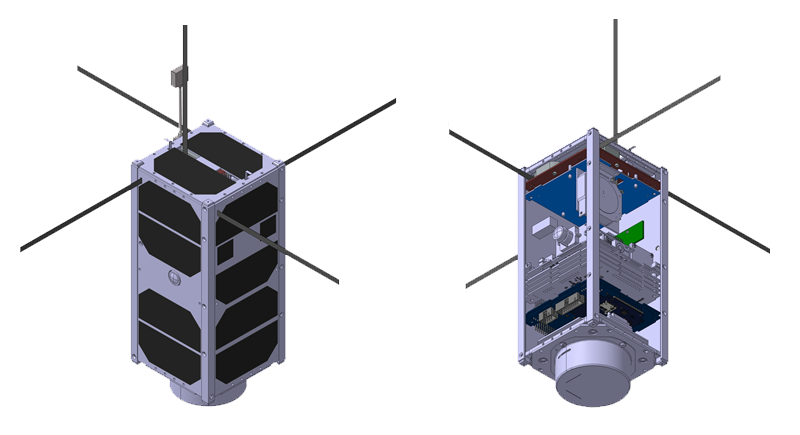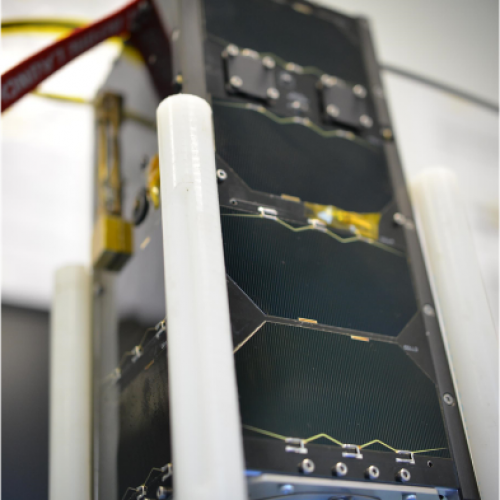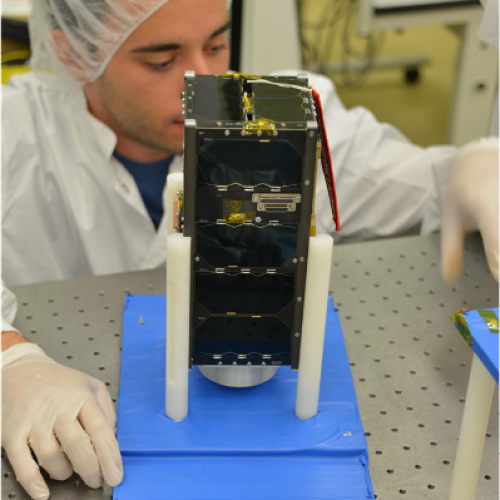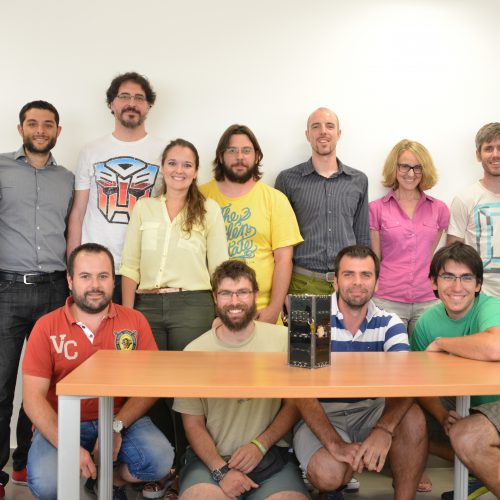QB50
QBITO is the first CubeSat developed by the Universidad Politécnica de Madrid (UPM) . It is a 2U CubeSat and is part of the 7FP project QB50, lead by the Von Karman Institute (VKI) in Belgium.
The QB50 mission consists of a network of 36 CubeSats that will study the properties of the lower thermosphere. 28 of these CubeSats are already onboard the ISS and will be deployed from the International Space Station (ISS) at the end of May 2017 and the other 8 will be launched by the Indian launcher PSLV. QBITO will be deployed from the ISS at an initial circular orbit of 420 km altitude and 51° inclination. Due to atmospheric drag, the CubeSat orbits will decay until the spacecraft burn in the atmosphere approximately 6 months after deployment.
The main objective of QBITO is to operate its primary payload: the Ion and Neutral Mass Spectrometer (INMS). This instrument -supplied by the VKI- aims to study the properties of the lower thermosphere.
Together with the INMS, QBITO will carry three additional payloads:
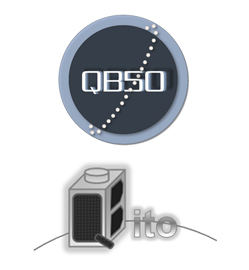
- An experiment to assess the performance of the n-Docosane as a Phase Change Material (PCM). Developed in collaboration with the University of Liège.
- A Medium Wave Infrared Detector, developed by the Spanish company New Infrared Technologies, which aims at testing this kind of detectors. The manufacturing process is based on the Vapour Phase Deposited PbSe technology in space conditions.
- An experimental software for an attitude determination and control system based on fuzzy control theory. The purpose is to test the suitability of this kind of algorithms for spacecraft attitude control applications.
The most distinguishing features of the QBITO platform are the new in-house developments present in the design. These include the structure, the Electrical Power Subsystem, the Communications subsystem and a novel antenna deployment mechanism. Those elements are complemented with Commercial Off-The-Shelf (COTS) units in order to reach a robust, yet innovative, architecture.
The CubeSat has been manufactured and tested by QBITO team which includes UPM staff, professors and students.
Disclaimers:
This project has received funding from the European Union’s Seventh Framework Programme for Research and Technological Development under grant agreement no [284427].
This publication reflects the views only of the authors, and the European Union cannot be held responsible for any use which maybe made of the information contained therein.


